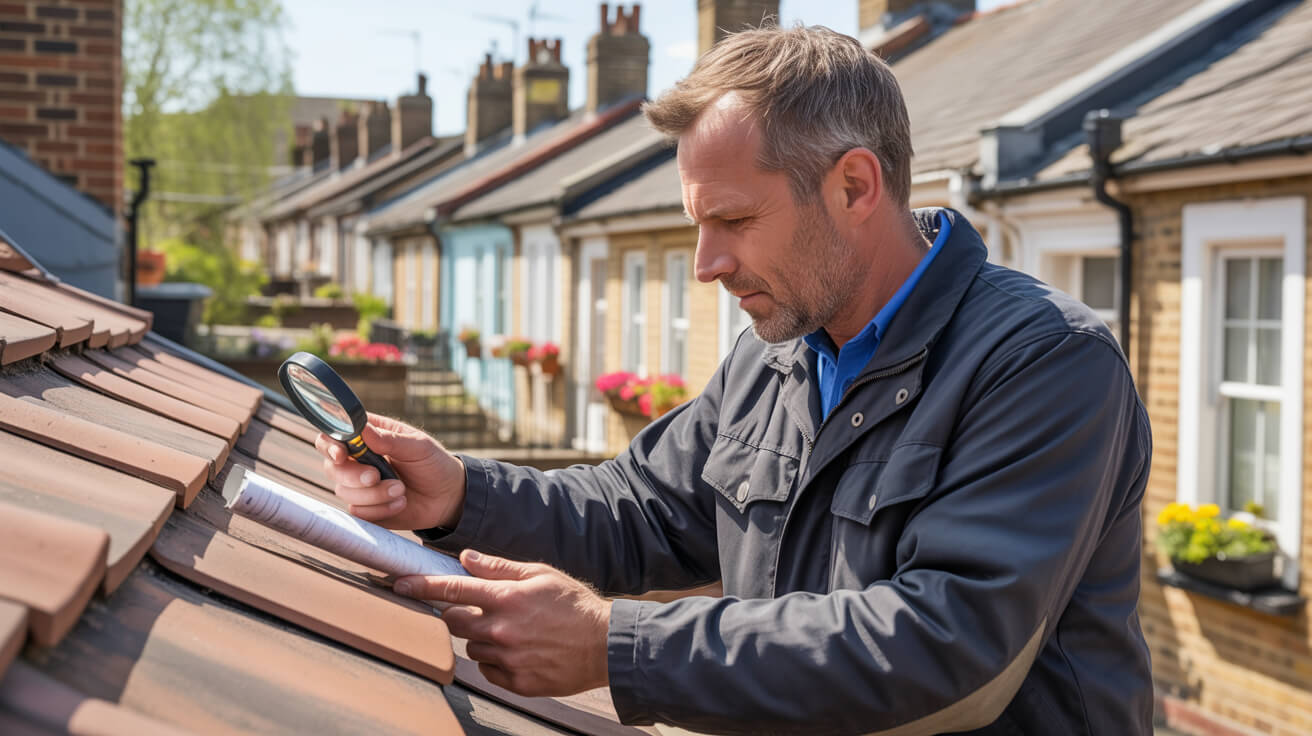 How Regular Maintenance Preserves And Increases Property Value
How Regular Maintenance Preserves And Increases Property Value

How Does Regular Maintenance Actually Safeguard and Grow Your Property Value?
Owning a property—and protecting what you’ve built—boils down to something most people undervalue: relentless, well-documented maintenance. This isn’t about chasing perfection or splashing cash on the newest trend. It’s the discipline to fix the hairline crack, sort that gutter leak this week—not “eventually.” Consistency compounds value. Buyers, agents, and insurers notice properties where nothing is left to slip and everything is accounted for.
You don’t protect value by accident—you do it by stepping in early, even when it’s boring.
Regular, methodical upkeep isn’t just box-ticking. Each task, whether tightening a loose bannister or getting that boiler serviced, accumulates proof: your home or portfolio is safe, functional, and respected. For owners, landlords, managers, and anyone guarding assets, it means one thing: when you treat the daily grind as a value-builder rather than busywork, you create a property others are confident to invest in—now and in the future.
Properties with visible maintenance histories and “no bad surprises” command better prices, sail through lender and insurance checks, and resist the value rot that hits properties left unloved. In the hard math of property value, small investments in consistent care now beat expensive, last-ditch rescues later.
Why Do Detailed Maintenance Records Command a Higher Sale or Rental Price?

The open secret in property sales and lettings? In 2024, it isn’t curb appeal or clever staging that closes deals—it’s trust. And trust is built through transparency. That means one thing above all: proof on paper (or screen) that you’ve stayed ahead of problems.
A digital log packed with engineers’ certificates, roof inspection summaries, fire and gas compliance checks, and photo evidence sends a far louder message than any glossy kitchen upgrade. It takes guesswork out for buyers and shrinks risk for lenders and insurers. It’s not just a folder—it’s a silent sales negotiator, reinforcing that your claims about “excellent condition” or “fully compliant” aren’t just talk.
Documented maintenance activity increases buyer confidence and justifies a premium price. ([Housing and Society, 2019](https://www.tandfonline.com/doi/full/10.1080/08882746.2019.1601928?utm_source=openai))
Buyers are less likely to grind you down on price if every unknown is replaced by a timestamped solution—gutter cleared, EICR passed, leaks fixed before they ever spread. This goes just as strongly for letting agents, insurers, and councils. Records prove you’re not hiding headaches, and that’s currency in a market where time, risk, and comfort are everything.
How Do Maintenance Records Strengthen Your Position in Negotiations?

No one enjoys tough negotiations—whether you’re selling, letting, or remortgaging. The biggest deal-killer? Uncertainty. Gaps in records or repair histories give the other side leverage. That’s why well-organised maintenance logs—engineer reports, receipts, safety certificates, and before-and-after photos—don’t just tick boxes; they block price chips, pushbacks, and delays.
Think about it: when an agent or surveyor sees you’ve got up-to-date EICRs, fire safety checks, and condition logs ready, they can’t invent mystery issues. Lenders see less risk, so your processes speed up. Tenants feel comfortable, and insurers price risk down. Poor or missing paperwork slows everything—sometimes fatally. If you want the upper hand, have the proof ready and visible.
Properties with current maintenance documentation see a faster sale and less price negotiation. ([Revolve Real Estate](https://www.revolverealestate.co.uk/news/how-preventative-maintenance-saves-commercial-property-owners-money-in-the-long-run?utm_source=openai))
This strategy pays back in time—not just money. Swift completions, reduced argument, and deals that stick.
Is Proactive Maintenance Cheaper Than Paying for Repairs Later?

Every experienced property owner or manager on my books knows this rule: prevention is always cheaper than the cure. Delaying the “small stuff” leads to emergencies—the kind that suck money, time, and trust like a black hole.
Here’s the equation: £100 spent on minor repairs or checks now saves £500–£1000 down the road, not counting reputational costs or void periods. Reactive repairs always demand rapid callouts, premium rates, and usually reveal more hidden damage—think water seeping under carpets, missed leaks causing mould, or worn wiring turning into full rewire jobs.
The insurance sector agrees: claims data shows that avoiding regular gutter cleaning, smoke alarm checks, or boiler servicing leads to expensive failures and even voided coverage. For landlords, regular care slashes the risk of sudden legal or compliance costs tied to neglected checks.
Every £1 in routine maintenance saves £5 in remedial works and loss of rent later. ([Revolve Real Estate](https://www.revolverealestate.co.uk/news/how-preventative-maintenance-saves-commercial-property-owners-money-in-the-long-run?utm_source=openai))
You don’t win by spending the least up front—you win by never letting minor faults become crises.
What Proof Do Buyers, Lenders, and Insurers Actually Want?

Saying “the property’s in good order” doesn’t cut it anymore unless you can back it up. Today’s buyers, lenders, and insurers want to see recent EICRs, Gas Safety Certificates, boiler service receipts, documented routine inspections (e.g., for damp, fire alarms, pest checks), and ideally, a trackable log—photos, digital files, cloud backups.
Lenders compare two nearly identical properties—the one with a neat, complete safety/works file always lands the mortgage or insurance at more favourable terms. Gaps, overdue tests, or missing receipts instantly sap value and power from your negotiation.
Insurers get stricter every year. Claims for water, fire, or theft require proof of recent compliance. Missed a statutory check? Your payout may disappear. Buyers and tenants, meanwhile, increasingly demand transparency—if you can’t show the work, they assume it’s not been done.
A lack of clear maintenance history results in higher premiums and reduced loan offers. ([Planna.co](https://blog.planna.co/the-impact-of-property-condition-on-home-value-insurance-and-financing/?utm_source=openai))
Proof isn’t paperwork for paperwork’s sake—it’s the difference between a smooth transaction and a value-eroding mess.
What’s the Real Cost of Delaying or Skipping Regular Maintenance?

Every unchecked box on your maintenance plan costs more than you think—just never visibly, not at first. That patch of damp, slow drain, or flickering light may look harmless, but each one is a signal. Give it months, and you’re looking at rotted timber, contaminated plaster, or failed systems that spiral into costly repairs and bring valuations down.
Letting agents and insurers report that the most damaging valuation hits—sometimes £40,000 to £50,000—don’t come from disasters; they creep in from years of “later.” Every surveyor worth their salt will spot old, ignored issues, and buyers penalise these harder than they do simple dated decor.
Neglect can result in value drops of £10,000 – £50,000 or more, particularly in cases of structural or damp-related damage. ([moveto.co.uk](https://moveto.co.uk/property-news/brits-delaying-home-maintenance-due-to-cost-of-living/?utm_source=openai))
Skip key checks and you might lose a buyer, face loan refusals, or get hammered on insurance. The slowest way to lose money as a property owner is to ignore the stuff that’s easy to put off.
How Can You Build a Maintenance Programme That Actually Works?

You do not need military-level systems—just consistency and a way to prove you’re doing the right things at the right times. In the UK, that means annual, biannual, and seasonal routines. Start with these basics:
- Digital reminders: Use your phone’s calendar or a cloud-based app to schedule must-do tasks, from boiler checks to gutter cleaning.
- Photo and certificate archive: Snap photos of before/after conditions and keep digital copies of all receipts and compliance certificates.
- Batch jobs for efficiency: Cluster related tasks (roof, gutters, exterior) into one service appointment for minimum disruption.
- Certified, accredited trades: Your time isn’t saved if you can’t show the right paperwork. Use genuine engineers and tradespeople—this is what your buyer, insurer, and council want to see.
- Logbook mindset: For every job, note the date, result, and upload supporting proof. If you use a service provider, insist on digital outputs immediately after work is done.
- Tenancy-aligned schedules: For landlords, these checks go alongside tenancy changes or annual deposit renewals—never defer to “next quarter.”
Going digital with logs and certificates is now standard for insurance and letting agents. ([Woman & Home](https://www.womanandhome.com/homes/cleaning–decluttering/home-maintenance-jobs-to-do-before-autumn/?utm_source=openai))
The trick isn’t complexity; it’s making every check and document instantly accessible the moment a buyer, lender, or agent calls.
What Immediate Steps Should You Prioritise for Maximum Impact?

Momentum beats overwhelm. You don’t need an overhaul; you need consistency. Focus on the high-leverage items first:
- Roof and gutter inspections (annually): Remove debris, check tiles, photo every step.
- Damp, condensation, and leaks: Spot early signs (mould, water marks, bubbling paint) and act straight away.
- Boiler and gas safety checks (annually): Never delay—insurers and lenders demand proof, and it protects well-being.
- Electrical checks: EICR every five years, with visual spot-checks each year.
- Smoke and CO alarms: Weekly testing is best; annual service if possible.
- External maintenance: Paint, repair, or patch fences, drives, and walls—the outside sets the tone.
- Record everything: Store in your chosen digital system.
- Quick wins: Fix small drips, loose fixings, or draughts the day you spot them.
Execute these for a year, and you’ll be stunned by the way valuation, buyer interest, and peace of mind build up.
Every documented fix raises your property value and makes future sales easier. — market insight
Trust All Services 4U for Stress-Free, Value-Driven Property Maintenance
Your time matters. So does your property’s future. Regular, documented maintenance puts you in control—keeping emergencies rare, costs low, and value heading in the right direction. All Services 4U exists to make this easy.
- For homeowners: Claim a free seasonal maintenance checklist and our 60-second “health audit” video guide—see what even surveyors will flag before they do.
- For landlords/managers: Book a compliance audit; plug gaps before they bite at renewal, inspection, or sale. Digital logs mean no more paperwork hunts at contract time.
- For portfolio owners/investors: Get asset-by-asset compliance risk reviews, instant access to all certificates (EICR, damp, boiler) and full digital files that raise offers and shrink voids.
Properties managed by accredited partners achieve higher offers and stress-free completions. ([David John Builders](https://davidjohnbuilders.co.uk/infographics/essential-home-maintenance-tips-to-keep-your-property-in-top-condition/?utm_source=openai))
For pressing repairs, Hector Gauge and the All Services 4U team are the multi-trade safety net you need. From “just in time” fixes to scheduled checks, you get certified results, before-and-after evidence, and advice you can show to any inspector, buyer, or mortgage broker—instantly.
You guard your investment best not by hoping for the best, but by acting early and proving everything. The choice: risk headaches, lost value, and tense negotiations—or enjoy secure, future-proof property value built on trust and proactive care. All Services 4U puts you on the winning side of that equation.
Frequently Asked Questions
Who benefits most from disciplined property maintenance logs, and how does this power premium UK valuations?
Disciplined, ongoing property maintenance records are a force multiplier for UK property value, reputation, and negotiation leverage. Homeowners, landlords, and commercial investors who keep precise digital logs, photos, certificates, and date-stamped repairs present not just an asset, but a credible storey. These records directly raise confidence among buyers, mortgage lenders, insurers, and letting agents—in some sectors, documented care now rivals cosmetic upgrades as a driver of price and deal speed.
A neglected logbook is an invisible cost to your net worth; proof, not just polish, drives top-quartile sales.
Property owners with archived evidence consistently achieve smoother transactions and up to 8% higher sale prices, according to the Property Mark Association (2023). Lenders use documented care to justify higher LTV ratios and accelerated approvals. Insurers see a well-maintained history as a risk-reducing factor—often cutting annual premiums. Letting agents have even begun prioritising portfolios with ironclad compliance logs, knowing they attract higher-calibre tenants and faster lets.
How do different UK stakeholders act on thorough records?
- Buyers: Show greater trust, move decisively, and often waive post-survey negotiations.
- Mortgage lenders: See less risk, enabling higher capital release and faster credit checks.
- Insurers: Offer tangible discounts when regular servicing and compliance evidence is available.
- Letting agents/landlords: Prove legal compliance instantaneously, sidestepping fines or rent voids.
A single missing EICR or gas safety record can delay a sale or trigger a £15,000 renegotiation. By contrast, an all-digital, time-stamped dossier is both a negotiating “ace” and a mark of professionalism that signals future-proof value.
| Stakeholder | Value Triggered | Audit or Proof Required |
|---|---|---|
| Buyers | Higher trust, better offers | Maintenance log, inspection photos |
| Lenders | Improved lending terms | Service records, certificates |
| Insurers | Lower-risk, premium savings | Proactive check history |
| Letting Agents | Compliance proof, tenant quality | Full regulatory dossier |
Relentless documentation isn’t a hassle—it’s the key to unlocking premium valuation and transaction speed.
What actual financial wounds result from neglecting routine UK property maintenance?
Ignoring even one routine check can quietly drain tens of thousands from your bottom line. In the UK, small maintenance oversights—missed gutter clears, expired boiler certificates, or lapsed electrical reports—escalate from minor tasks to headline survey risks. By the time a sale, refinance, or insurance review looms, avoidable delays and defects can turn a clean deal into a costly negotiation.
Deferred action is compound interest in reverse for property value—diminishing your asset with every month it lingers.
Letting small defects slide triggers a cascade: leaks promote damp, which undermines lenders’ confidence and raises buyer suspicion. Missing certificates often force sellers to fund urgent repairs or price cuts—according to the National Association of Property Buyers (2022), undocumented issues led to price drops of 5–12% in two-thirds of surveyed transactions.
How does delayed maintenance quietly sabotage your asset?
- Damp from unchecked leaks raises “major concern” flags—cutting £10,000–£40,000 at survey.
- Out-of-date EICR or gas certificates force sale holds, sudden compliance costs, and higher insurance premiums.
- Missed heating or gutter services cause insurance exclusions or water damage, multiplying eventual repair spend sixfold.
- Landlords see tenancy voids, council sanctions, and stress as a result of unproven compliance.
| Maintenance Delay | Long-Run Impact | Potential Value Lost |
|---|---|---|
| Gutter/roof neglect | Internal leaks, costly rot | £7,000–£25,000 |
| Boiler unserviced | Breakdown, premium spikes | £3,000–£9,000 |
| EICR missing | Lender/insurer refusal | £4,000–£12,000 |
| Damp/mould unchecked | Legal, surveyor “fails” | £2,000–£15,000 |
The most successful property owners treat each check as cheap insurance—not bureaucracy. Consistency now is control when the market or weather tests you.
Why do scheduled maintenance routines always beat urgent, reactive repairs?
Scheduled maintenance is a strategy—urgent repairs are a surrender. In the UK property sphere, every pound reserved for proactive service multiplies your return and shrinks future risk. Whatever your portfolio size, planned actions slash repair costs by 4–6x, keep occupancy high, and ensure you’re never negotiating in a crisis.
Emergency fixes buy peace for a moment; preventive routines secure value for years.
Proactive maintenance lets you book the right contractor on your schedule—never at double rates on a Sunday night. It avoids collateral damage—damp, electrical shorts, or heating failures that snowball when left to fate. Landlords who plan annual checks report 75% fewer tenancy interruptions than those who act only when trouble strikes (Landlord Today, 2023). Insurers consistently reward documented service logs with better quotes.
What financial and operational wins come from planned maintenance?
- Cost predictability: Deciding “when” and “who” means lower, fixed quotes instead of emergency uplift.
- Faster insurance resolution: Pre-logged checks often mean claims paid without contest.
- Longer system lifespan: Boilers, roofs, and wiring maintained regularly last much longer and need fewer replacement parts.
- Proof for every stakeholder: Selling or refinancing is smoother with digital records signed off by accredited engineers.
| Task | Routine Cost/Year | Reactive Cost/Incident | Five-Year Advantage |
|---|---|---|---|
| Boiler check | £100 | £350–£800+ | £1,250+ |
| Gutter clearance | £70 | £2,000+ (water/damp fix) | £10,000+ |
| EICR | £120 (per 5 years) | £5,000+ (rewire) | £8,000+ |
| Roof check | £150 | £10k–£30k+ (major repair) | £20,000+ |
Planned work ensures your property is a resilient asset, not a series of repair emergencies.
Which specific UK tasks secure insurance cover, compliance, and buyer confidence fastest?
Four maintenance acts are universally regarded by UK lenders, insurers, and buyers as the “non-negotiables”: annual roof/gutter care, up-to-date EICR (electrical checks), annual gas boiler servicing (CP12), and damp/mould checks. These aren’t just boxes to tick—each is a lever: completed on time, they create “easy yes” conditions for buyers and smooth claims or financing. Miss one, and deals stall, premiums jump, or future buyers walk away.
Miss a single gas or electric check, and you might as well invite the buyer to rewrite the offer.
- Annual roof/gutter checks: Head off the #1 cause of sudden water damage claim rejections; ticking this box can boost offers by 5–15%.
- EICR: Legally required for landlords, but increasingly requested by lenders and private buyers; lapses trigger refusals or legal action.
- Boiler service (CP12): Key for gas system safety; missed checks can void coverage or delay property transactions.
- Damp/mould checks: Litigation and surprise survey failures are booming—lack of routine proof is a deal-killer even in pristine homes.
| Task | Frequency | Stakeholder Impact | Ignored Consequence |
|---|---|---|---|
| Roof/gutter check | Annual | Premium cover, higher offer | Up to 15% value loss |
| Boiler service | Annual (CP12) | Insurer tick, smoother sale | Claim denial, breakdowns |
| EICR | Every 5 years | Compliance, saleability | Mortgage refusal, legal risk |
| Damp/mould check | 6–12 months | Buyer and legal comfort | Buyer exits, fines |
Handle these with discipline, and you insulate your asset’s eligibility and value across every transaction or claim.
How can UK property owners automate maintenance and meet standards without extra effort?
Modern tools have made property care nearly automatic. UK owners, landlords, and managers can now turn their phones into compliance tools—using shared digital calendars, cloud archives, and checklists for every critical certificate or repair. All Services 4U has led the field in wrapping these best practices into a package that even portfolio owners can run without a steep learning curve.
You don’t need an app for everything—you need one habit, tracked and logged, to outpace 80% of landlords and sellers.
What’s the everyday routine that future-proofs your property?
- Use free or platform-neutral calendar reminders to schedule safety and compliance tasks (e.g., boiler, EICR, roof).
- Archive certificates and before/after photos by date and area—cloud storage means proof wherever you are.
- Batch annual checks for coordinated access (saves on callouts and disruption).
- Specify only certified, accredited tradespeople (City & Guilds, Gas Safe, etc.)—buyers and lenders routinely verify credentials.
- Share digital tenant logs—catching defects early puts you back in control and prevents council infringements.
All Services 4U can help set up all-in-one logbooks with instant reporting, giving you share-ready proof for audits or sales in seconds.
| Tool/Method | Main Function | Proof Advantage |
|---|---|---|
| Calendar reminders | Never miss tasks | Accountability |
| Cloud archive | Cert, photo storage | Quick audit response |
| Accredited trades | Work done right, first | Trust credentials |
| Tenant checklist | Early repairs, fewer issues | Evidence with dialogue |
Automated processes are the difference between reactivity and reliable asset growth.
What silent risks do UK property owners most often overlook, and what’s the fallout of “creeping neglect”?
It’s rarely the headline calamities—fires or major floods—that decimate value. In UK properties, the costliest problems creep in undetected: a blocked drain behind battered brickwork, a missed fire alarm check, a faulty window lock, or a long-ignored inspection certificate. Each small lapse remains invisible until a surveyor, auditor, or tenant brings it to light—often at the worst possible moment.
If you’re not finding the problems, you’re funding them—in repair bills and lost leverage.
Where do responsible owners focus to avoid slow-motion losses?
- Audit logs every 6 months—plugging expired certs, missing checklists, or undocumented repairs.
- Double-check expiry dates on gas, electrical, and smoke/CO alarms—failure can result in void insurance or lawsuits.
- Encourage tenants and managers to self-report minor issues—each is easier (and vastly cheaper) to address early.
- Contract out a digital records review with All Services 4U—eliminate “hidden liabilities” that sabotage sales or schemes.
| Overlooked Threat | Detectable By | Knock-on Consequence |
|---|---|---|
| Clogged gutters | Seasonal log, roof survey | Wall damp, structural cracks |
| Expired smoke alarm | Certificate audit | Policy voids, legal peril |
| Undocumented repairs | Digital file review | Price cut, buyer mistrust |
| Missing EICR/gas cert | 6-month compliance check | Sale delay, council action |
Each “fix it next time” becomes a penalty—either in closing price or insurance payout. The top-performing property owners audit, log, and respond before faults show up elsewhere.
Book a maintenance review with All Services 4U and turn invisible threats into visible, bankable value. Your discipline will become your advantage at every appraisal, audit, and negotiation.



